
The Business of Fashion
Agenda-setting intelligence, analysis and advice for the global fashion community.

Agenda-setting intelligence, analysis and advice for the global fashion community.
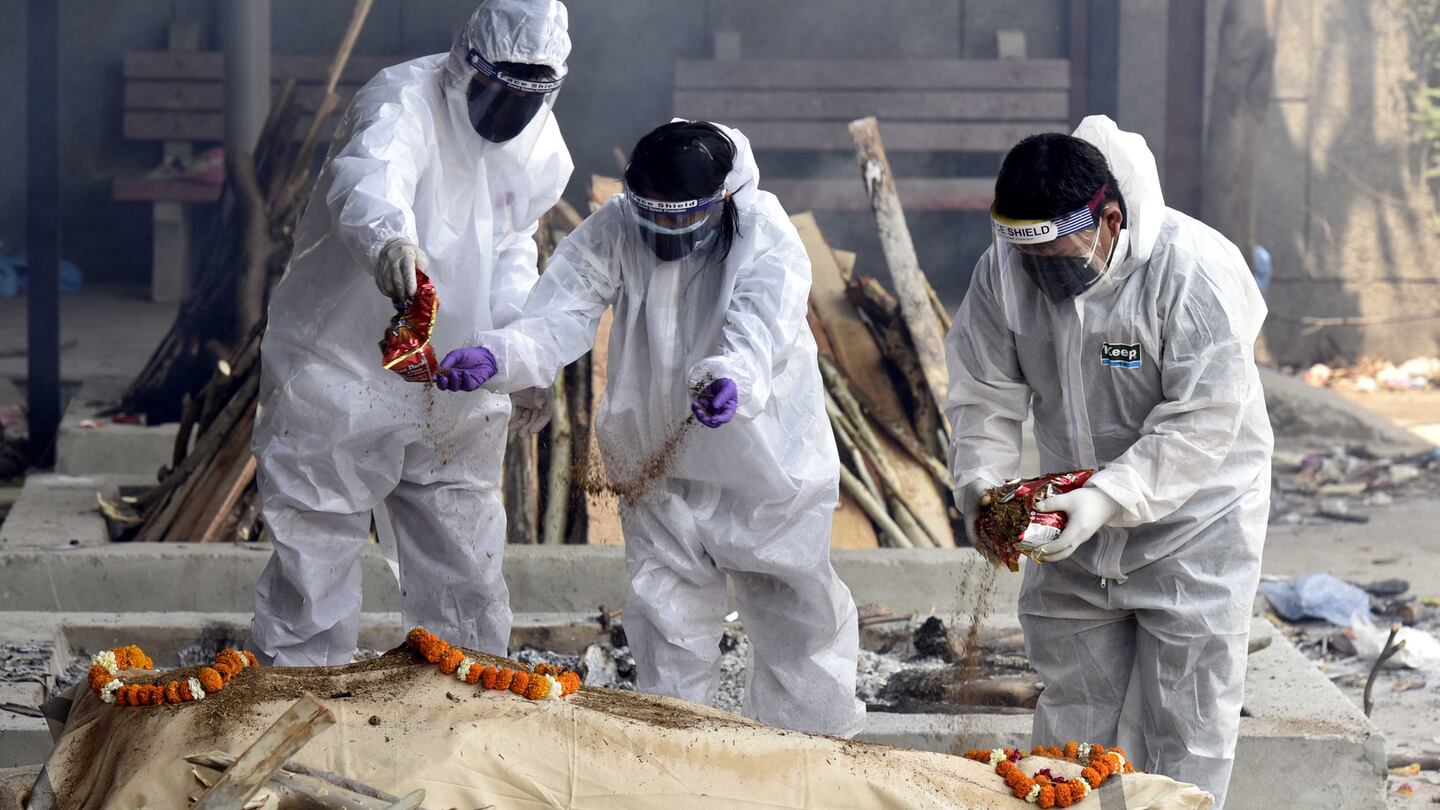
This week, as the world’s worst coronavirus crisis gripped India, devastating images of mass burials and cremations, and desperate people seeking help at unbearably full hospitals, filled news reports.
On Friday, India’s Health Ministry registered 386,452 new infections and 3,498 new fatalities, pushing the death toll past 208,000. But experts say the human cost of the country’s second wave is much higher than official statistics suggest.
Everyone in Mumbai and Delhi seems to know at least one person who has died in recent days. Even the wealthy feel the walls closing in on them as the contagion advances, causing some to flee to Dubai, London, the US and elsewhere, as many more stay sealed in their homes.
Some have blamed new Covid variants for the surge, though their role remains unclear. What is indisputable is the failure of India’s ruling party to effectively manage the crisis, compounded by underlying poverty and the weakness of the nation’s healthcare system.
ADVERTISEMENT
According to key indicators from railway freight volumes to unemployment figures, the unprecedented rise in coronavirus cases is already putting significant stress on India’s economy, including its large fashion retail and manufacturing sectors, pushing more businesses to failure and deepening the economic hardship faced by millions.
“People are more concerned about their near and dear ones and the immediate priority is health and safety of family and friends and that’s where shopping has taken a back seat,” Sundeep Chugh, CEO of Benetton India, told the Economic Times last week.
It wasn’t long ago that India’s Covid-19 deaths were surprisingly low for a poor and populous country with dense cities and multi-generational households.
Business indicators were pointing in the right direction, too. In February, after a year of crisis, stores were buzzing again with enthusiastic shoppers looking for new clothes. By the end of March, retailers had recovered to 90 percent of pre-pandemic sales levels, according to the Shopping Centres Association of India.
Now, as the second wave grows, curfews and other restrictions on public activities in cities such as Mumbai, alongside localised lockdowns in various Indian states and localities, including Delhi, have cut sales revenues in half, according to the Retailers’ Association of India. High profile store openings by several global brands have also been delayed.
E-commerce is down, too. Omnichannel partner Ace Turtle, which handles e-commerce for international labels including Fossil, RayBan, Skechers and Tommy Hilfiger, said online sales for its brands declined by 12 to 14 percent in March and April compared to the two months prior. Rival ANS Commerce, which manages Jack & Jones, Bath & Body Works and Aldo, said e-commerce orders were down as much as 20 percent.
In Maharashtra, India’s richest and worst-hit state, a ban on non-essential deliveries has put a stop to online sales altogether, though at the high end of the market some retailers are turning to a combination of video calls and messengers to service what demand remains.
Even when the current crisis does eventually pass, fashion sales may not bounce back as quickly as they did after the first wave of infections with consequences for local and international brands.
ADVERTISEMENT
The economic shock of the latest surge is likely to seriously damage consumer confidence, compounded by the fracturing of India’s self-image as a fast-modernising country. And though no one knows how long the second wave will last, the fear of contagion will surely curtail socialising for months or more in a nation where only 2 percent of the population is fully vaccinated.
On the supply side, India’s fashion manufacturing sector, one of the world’s biggest exporters of apparel and textiles, has seen orders evaporate again, pushing more small players, already weakened after a year of crisis, to shut down as they run out of working capital.
“The impact from the second wave could be more severe given the already weak condition of many players,” said a report by Indian brokerage Motilal Oswal.
Some states are trying to keep manufacturers open in a bid to stop the flight of orders to other countries. The state government of Karnataka, for example, is allowing garment factories to operate at half their capacity despite a wider lockdown in a bid to shelter a sector that employs about 800,000 workers in Bengaluru.
In the short-term, failure to meet delivery commitments to international businesses could result in penalties. But as the crisis deepens and some foreign buyers divert orders from India to other garment manufacturing hubs like Bangladesh, the situation could have consequences for future business, too, resulting in lasting damage to India’s fashion manufacturing sector, which was previously picking up orders from international brands seeking to curb their overdependence on China.
Among those facing ruin are India’s karigars, artisans whose specialised skills in embroidery, beading, appliqué and other handicrafts have made them critical to global luxury brands. According to a recent report in the New York Times, the surge is putting new pressures on specialist suppliers already in dire straits after a year of slashed orders as the pandemic forced the cancellation of galas, weddings and other big events around the world.
Some local governments have allowed karigar workrooms to stay open, but the costs of virus containment measures, such as dormitories for workers to sleep on site, have increased the burden on already struggling businesses. And as the crisis grows, pushing more suppliers to the brink, global luxury brands may find it difficult to ramp up specialised production again when events return in earnest, leaving a critical gap in their supply chains.
Indeed, as consumption stalls and key parts of the supply chain are disrupted, it’s increasingly clear the damage to India’s fashion industry will be felt far beyond the country’s borders, a devastating reminder that, in a globalised world, no country is truly free from coronavirus until we all are.
ADVERTISEMENT
THE NEWS IN BRIEF
FASHION, BUSINESS AND THE ECONOMY
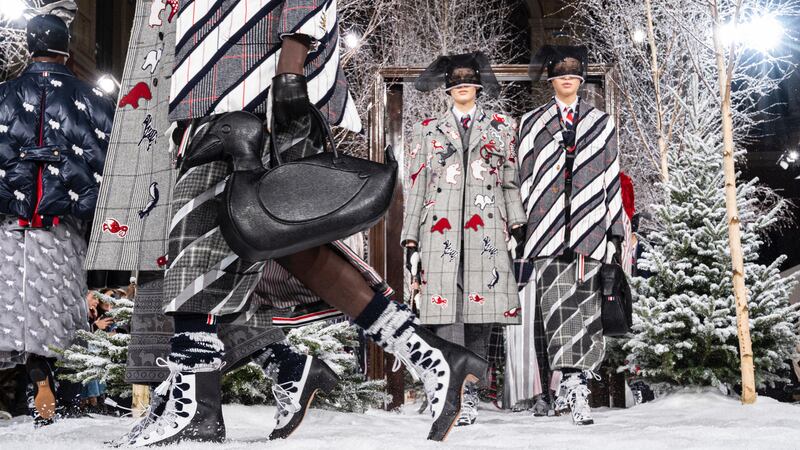
Thom Browne to return to New York Fashion Week in September. The American designer has decided to return to the American fashion capital for the brand’s Spring 2022 show, a person familiar with the matter confirmed to BoF.
Puma sees sales hit from China backlash and freight delays. German sportswear company Puma expects a consumer backlash against Western brands in China and congestion at ports to hit its sales though it gave an upbeat outlook for 2021 following a strong first quarter.
Shopify revenue more than doubles in online boom. The company was a clear pandemic winner as lockdowns fuelled a swift to online purchases, with revenue jumping 86 percent last year from 2019, making it Canada’s most valuable firm.
Jessica Alba-backed Honest Co targets over $1.5 billion valuation in US IPO. The firm is tapping into the red-hot IPO market as it plans to strengthen its online business and bolster its international presence.
Perfume-maker Puig seeks to triple revenues after loss-making 2020. Puig said like-for-like sales fell 32 percent last year as it reported a net loss of €70 million ($84 million). The Spanish perfume and fashion group — whose brands include Paco Rabanne, Nina Ricci and Dries Van Noten — says it now aims to double its overall revenues of €1.5 billion by 2023 and triple them by 2025.
Tiffany launches diamond engagement rings for men. Next month, the American jeweller will introduce a collection of men’s rings featuring diamonds measuring up to 4.3 carats — the brand’s first solitaire rings for men, WSJ Magazine reports.
Christopher John Rogers and Bianca Saunders among LVMH Prize finalists. In addition to London-based menswear designer Bianca Saunders and American designer Christopher John Rogers, the finalists include Kika Vargas, Lukhanyo Mdingi, Nensi Dojaka and more.
CFDA and Vogue announce Fashion Fund finalists. Eckhaus Latta and Hanifa are among the programme’s 2021 class. This year, the competition was open to past finalists and established designers in order to offer financial relief to designers amid the pandemic.
THE BUSINESS OF BEAUTY
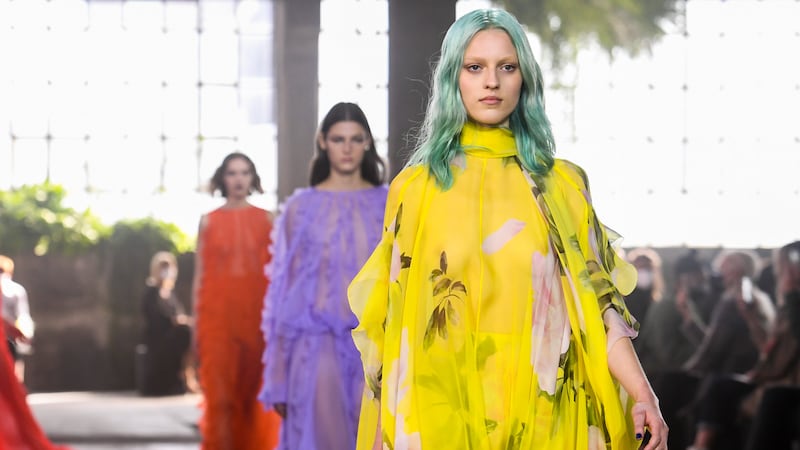
Valentino set to launch makeup collection. In the coming weeks, Valentino, one of fashion’s few remaining beauty holdouts, will roll out its first line of colour cosmetics, a collection that includes products like lipstick and foundation.
Naomi Osaka to debut skin care brand for people of colour. The tennis star is now the chief executive of Kinló, a new venture launched with Los Angeles-based A-Frame Brands that aims to provide sun and skin protection to underserved, darker-skinned consumers.
Amorepacific’s Q1 earnings surge by 86 percent. The South Korean beauty group, which owns brands including Laneige and Sulwhasoo, reported a nearly 90 percent year-over-year increase in its first-quarter earnings on the back of online and overseas sales growth on Wednesday.
Sephora will sell mostly exclusive brands at Kohl’s. As the beauty retailer gears up to open its first 200 shop-in-shops inside Kohl’s in August, it announced that the new store formats will rely on brands that have exclusive deals with Sephora.
Mousse Partners bet on Beautycounter over Ulta. The latest Beautycounter investment was made as Carlyle Group Inc. took a majority stake in the skin care and cosmetics brand. It valued the company, which primarily sells online, at $1 billion.
PEOPLE
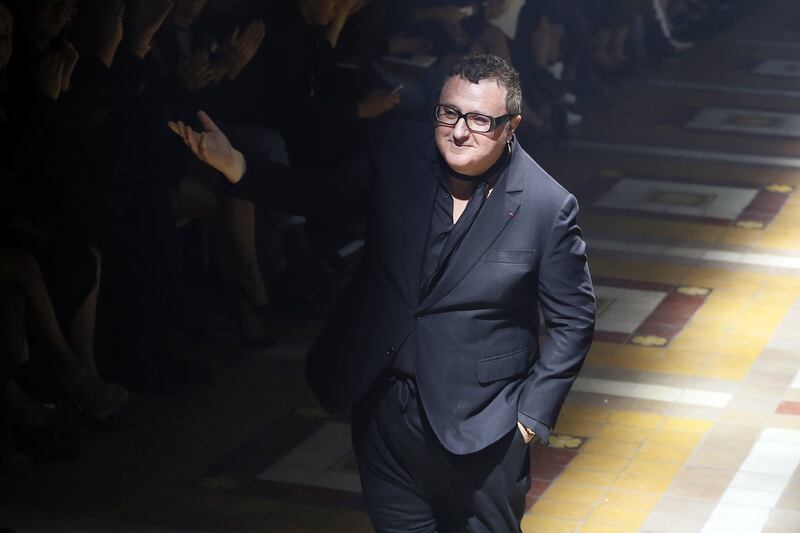
Alber Elbaz laid to rest in Israel. The funeral was held in Holon, where Elbaz was raised after immigrating to Israel from Morocco as a child. Hundreds of family members, friends and Israeli fashion industry leaders attended the service.
Kenzo to part ways with designer Felipe Oliveira Baptista. The former Lacoste creative director is set to leave the brand when his contract expires in June, as LVMH re-examines underperforming units. The brand did not say if or when it plans to name a successor.
Guillaume Motte named deputy CEO of fashion group at LVMH. The president of Sephora in Europe and the Middle East, who joined LVMH in 2018, will join Sidney Toledano in overseeing the luxury conglomerate’s fashion group, which includes Celine, Givenchy and Loewe.
Tapestry appoints Scott A. Roe as CFO and head of strategy. The longtime VF Corp. executive will lead financial functions as well as the strategy and consumer insights teams at the New York-based parent company of Coach, Kate Spade and Stuart Weitzman beginning June 1.
MEDIA AND TECHNOLOGY
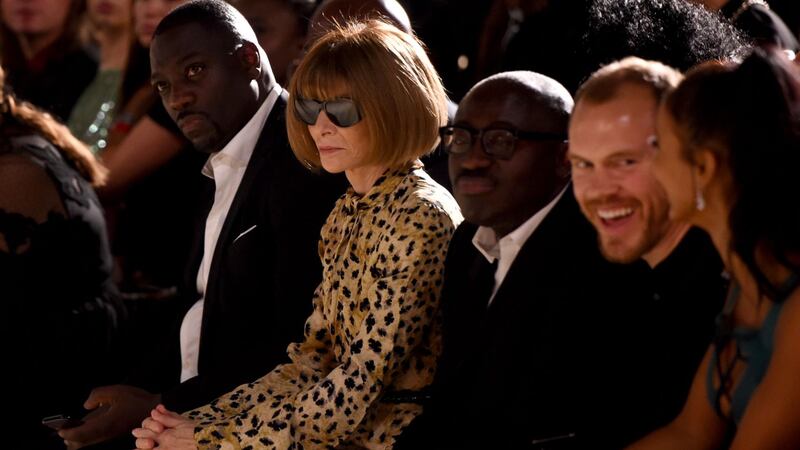
Condé Nast global merger puts jobs at risk. Last week, the publisher of Vogue, Vanity Fair and GQ notified some employees in the UK that their jobs were at risk of redundancy as the publisher moves to realign reporting structures and merge brand teams in different regions, according to the Press Gazette.
Gucci and Facebook file joint lawsuit against alleged counterfeiter. The initiative, a first of its kind for both Gucci and Facebook, is the latest example of an Internet giant joining forces with a luxury label to fight the proliferation of counterfeit goods being sold via social media.
Apple’s new privacy changes set to limit advertiser tracking. On Monday, Apple Inc. will begin rolling out an update of its iOS operating system equipped with new privacy controls designed to limit digital advertisers from tracking iPhone users. The change will bring a new pop-up notification to some apps, seeking user permission to collect data that Apple believes could be used to track their browsing habits across third-party apps and websites.
Facebook reveals new features for creators to earn money from e-commerce sales. Facebook chief executive Mark Zuckerberg said on Tuesday that the company will build new features, starting on Instagram, for content creators to earn money from recommending products on the app and more easily connect with brands.
Compiled by Darcey Sergison.
This week’s round-up of global markets fashion business news also features the China Duty Free Group, Uniqlo’s Japanese owner and a pan-African e-commerce platform in Côte d’Ivoire.
Affluent members of the Indian diaspora are underserved by fashion retailers, but dedicated e-commerce sites are not a silver bullet for Indian designers aiming to reach them.
This week’s round-up of global markets fashion business news also features Brazil’s JHSF, the Abu Dhabi Investment Authority and the impact of Taiwan’s earthquake on textile supply chains.
This week’s round-up of global markets fashion business news also features Dubai’s Majid Al Futtaim, a Polish fashion giant‘s Russia controversy and the bombing of a Malaysian retailer over blasphemous socks.